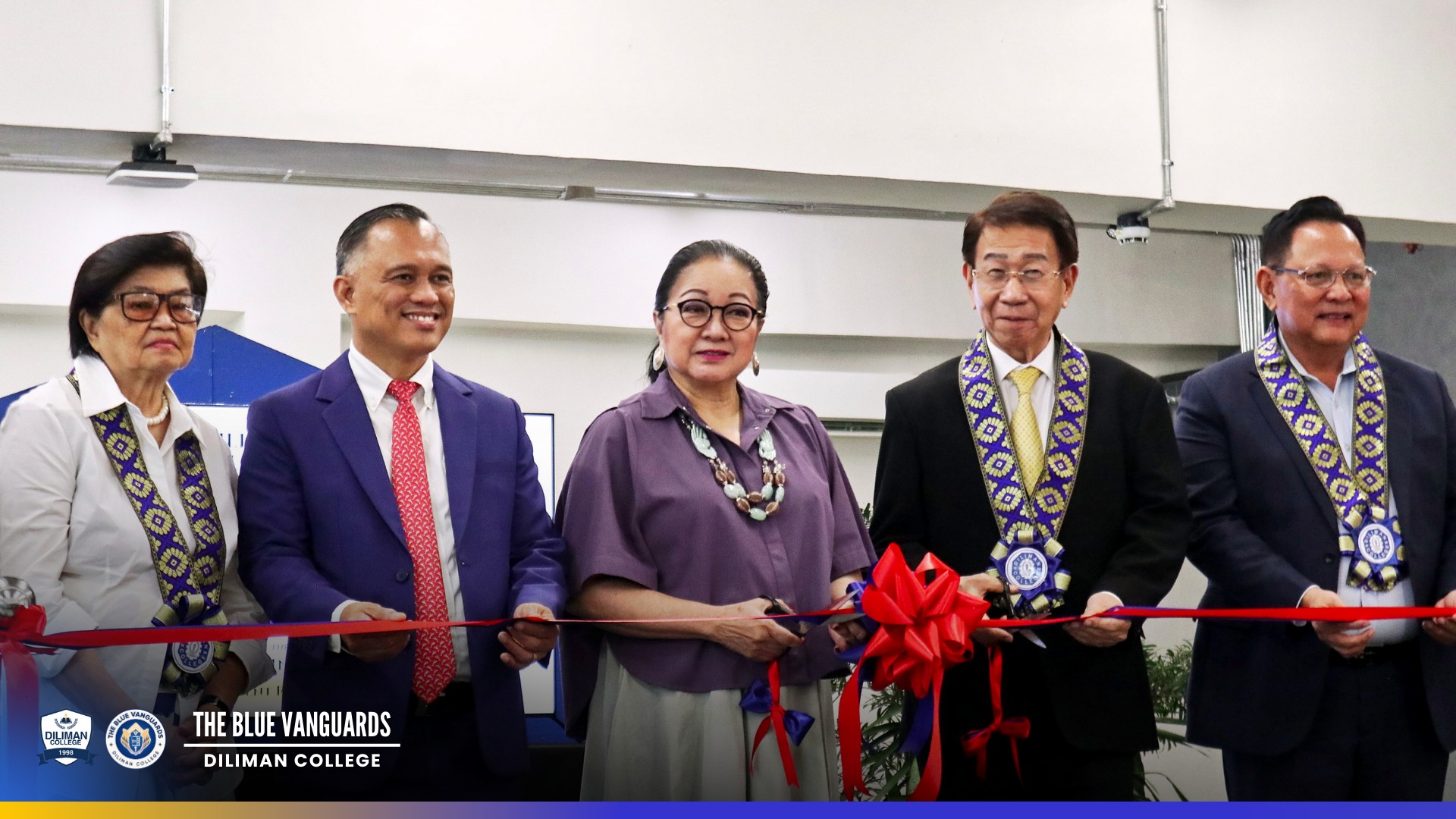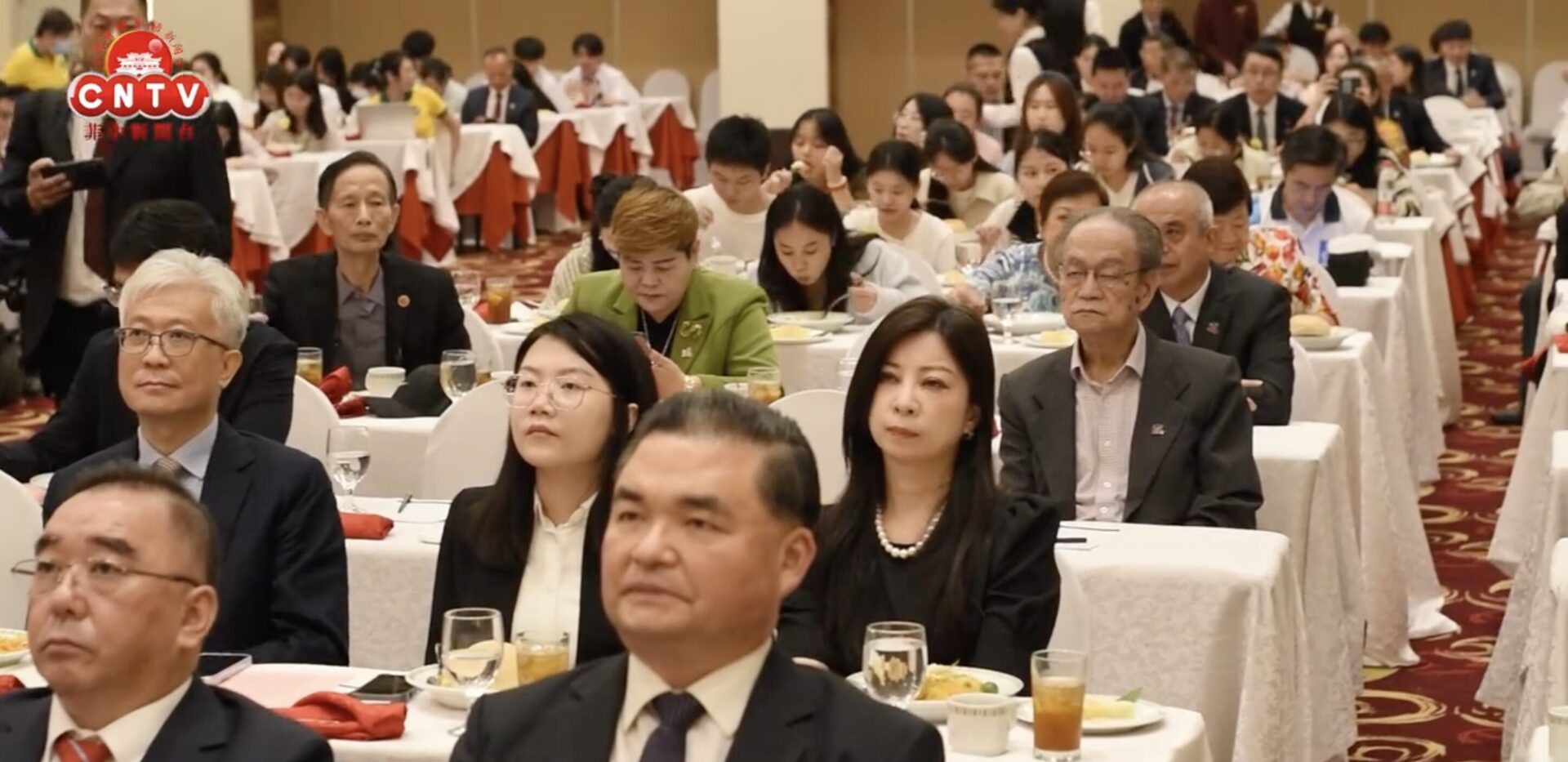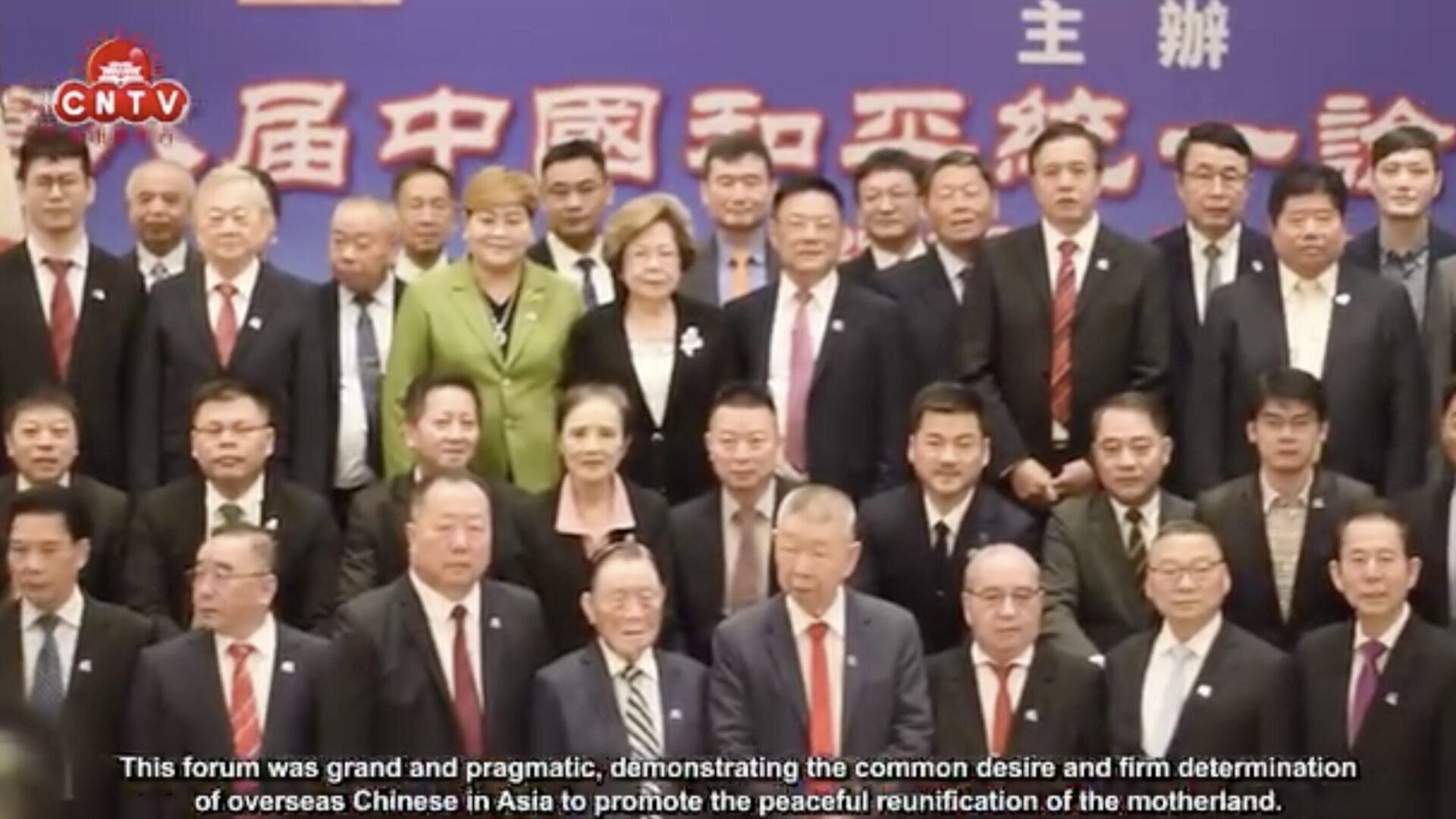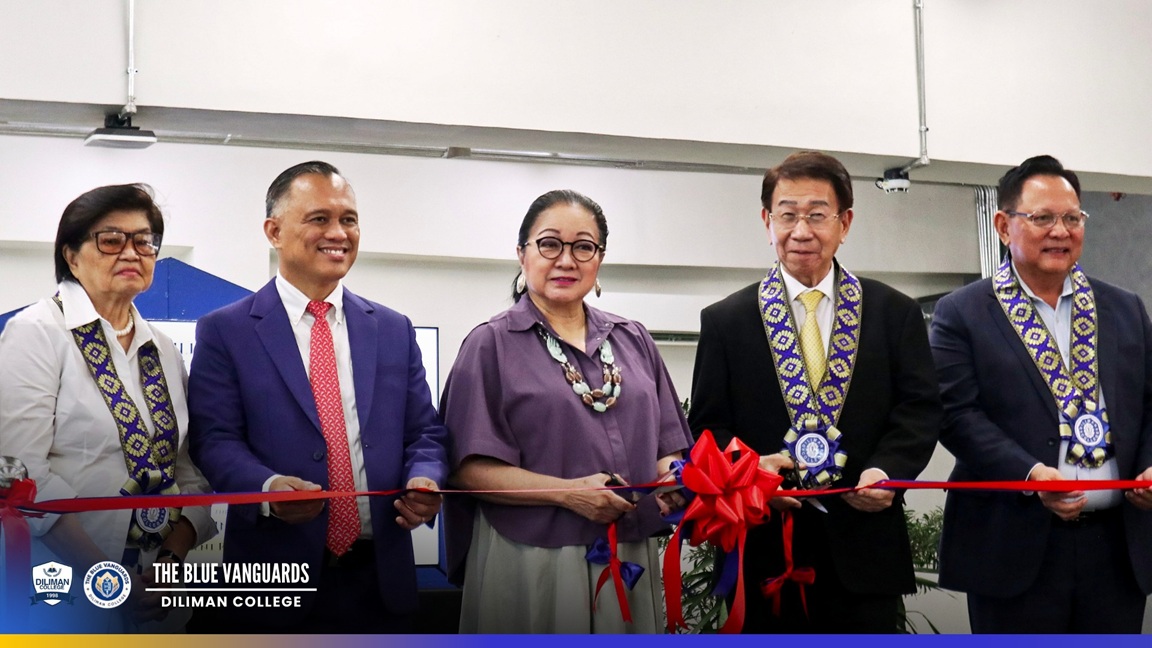A private school in Manila launched Nov. 18 a new academic center aimed at reshaping the negative perception of China at a time of ongoing tensions and widespread public distrust toward Beijing.
The opening of the new Philippine-Chinese Studies Center at Diliman College followed a large gathering of overseas Chinese citizens at the Century Park Hotel in Manila in October, opposing Taiwan independence while promoting unification with the mainland.
Chinese Embassy Charge d’Affaires Zhiyong Zhou was present in both events.
The new Center hopes “to overcome the extent of Filipino public ignorance” and generate “real empirical knowledge essential to promote mutual understanding,” said the Center’s director Rommel Banlaoi, a Chinese-educated security scholar.
“There is so much misunderstanding, and to be blunt, enormous ignorance of the Filipino people on the various aspects of Philippines-China relations,” particularly regarding the South China Sea, he said during the Nov. 18 launch attended by school officials, students, Chinese embassy officials, leaders of Filipino-Chinese groups, and their supporters.
Banlaoi, whose perceived closeness to Beijing previously sparked controversy, was appointed deputy director general of the National Security Council in 2022. Insiders later challenged his nomination, accusing him of being a “seller of information,” to which he denied.
He said Filipinos’ supposed “misunderstanding” of Philippines-China relations is reflected in public opinion surveys where China registers low trust and satisfaction ratings. Chinese encroachment and harassment of Philippine ships and aircraft in the West Philippine Sea, Manila’s exclusive economic zone in the South China Sea, has apparently contributed to these poor scores.

Ribbon cutting ceremony opens the PH-Chinese Studies Center in Diliman College, Quezon City. From left to right are: Former national security adviser Clarita Carlos, PH-Chinese Studies Center Director Rommel Banlaoi, Diliman College President Nikki Coseteng, Federation of Filipino-Chinese Chambers of Commerce and Industry, Inc. President Victor Lim, and Association for Philippines-China Understanding Chairman Raul Lambino. Photo from Diliman College.
The new Center will facilitate academic collaboration, policy dialogues, and people-to-people exchanges between the Philippines and China to foster greater understanding, Banlaoi said. The Center’s building is expected to be inaugurated early next year and it received no funding from either the Chinese or Philippine governments to avoid political influence, he said. By contrast, Chinese government-funded language and cultural education Centers known as Confucius Institutes — mostly located in universities worldwide — have been criticized for being used as political and propaganda tools.
The launch comes at a time when China’s influence operations face heightened scrutiny in various parts of the world, including in the Philippines, where concerns are intensified by the West Philippine Sea dispute, maritime confrontations, and reported Chinese interference and espionage activities.
Over the past week, a Philippine security official alleged that recent anti-government protests were funded by China, a claim which the organizers denied.
‘Just the beginning’
Classroom hallways at the Diliman College were transformed into a mini Chinatown in time for the Center’s launch, with corridors lined with red and blue lanterns, paper dragons, and gold ornaments. The display was part of a Filipino–Chinese friendship–themed design contest to mark the event.
Diliman College President Nikki Coseteng, herself of Chinese descent, said she immediately volunteered the school when Banlaoi proposed the Center. “This is precisely what we need,” the former senator said, adding that it could help those “still wavering, still doubting, maybe afraid” by turning “the unknown into something known.”
Referring to the territorial maritime conflict in the South China Sea, where China’s encompassing nine-dash line map includes parts of the Philippines, Vietnam, Malaysia, Brunei and Taiwan, Coseteng said, “We have a sea that should serve as a bridge between our two countries rather than walls that divide us.”
In the 2024 Christmas Party of the Chinese Embassy, Coseteng was one of the guests and she spoke for more than a hour about her family and relations with China.
Founded in 1998, Diliman College is a private tertiary institution along Commonwealth Avenue in Quezon City offering programs in information technology, education, and business administration. There are no public records of its student population.
Former national security adviser Clarita Carlos, who had nominated Banlaoi for the NSC post, encouraged him to establish more Centers. “You should promise me that this will be just the beginning. I want this to multiply itself in universities and colleges all over the archipelago,” she said.
Zhou, representing the Chinese embassy, described current tensions as “temporary,” expressing confidence that both nations can “manage differences and carry forward our friendship.”
“We look forward to working with more friends of insight to remove distractions and bring our better relations back onto sound and steady track at the very end,” he said.
Consolidating support of overseas Chinese citizens
A month prior, hundreds of overseas Chinese citizens gathered in Manila on Oct. 19 for a meeting that forms part of the Chinese Communist Party’s campaign to oppose Taiwan independence and promote unification with the mainland.
Hosted by the Philippine Council for the Promotion of Peaceful Reunification of China (PCPPRC), the 8th China Peaceful Reunification Forum, held at the Century Park Hotel, highlighted Beijing’s use of overseas networks to amplify its messaging on Taiwan.

Peaceful reunification but use of force an option
China views self-ruled Taiwan as part of its territory and has pledged efforts to pursue “peaceful reunification,” while keeping open the option of using force. Taipei rejects Beijing’s sovereignty claims.
China has vehemently objected to the Marcos government’s decision in 2023 to establish two sites in Cagayan, about 600 kilometers to Taiwan, where the American troops would have access for training and store supplies supposedly related to humanitarian relief efforts in the Philippines under the PH-US Enhanced Defense Cooperation Agreement.
The Philippine government authorities have said they are aware of the realities in case of armed conflict between China and Taiwan and are putting in place contingency plans to protect the more than 250,000 Filipinos in Taiwan, mostly working in the manufacturing sector.
Diplomatic relations between the People’s Republic of China and the Philippines were established in June 1975 with the Ferdinand Marcos, Sr. government adopting the One-China policy which recognizes the Beijing-centered government as representing the Chinese people. Relations with the Republic of China (Taiwan) was limited to people-to-people.
Oppose Taiwan ‘independence’
The Oct 19 forum’s theme — “Uniting Ourselves, Meeting New Challenges, and Promoting High-Quality Development of Anti-Secession and Pro-Reunification Work” — reflected Beijing’s messaging amid heightened cross-strait tensions.
More than 300 representatives of the China Association for the Promotion of Peaceful Reunification of China from various Asian countries and regions, along with experts, scholars, teachers, students, and overseas Chinese from different sectors, attended the event, according to a report by Chinatown News TV, a Filipino-Chinese news program.
During the forum, PCPPRC President George Tiu warned of a “complex and severe situation” surrounding Taiwan and urged overseas Chinese communities to “unite as one” and oppose “any form of Taiwan independence” separatist activities, echoing Beijing’s official statements.
A news report on the event dated Oct. 29, quoted Zhou as reiterating “the firm stance of the one-China principle and affirmed the long-term efforts made by overseas Chinese to promote the reunification of the motherland.”
Wang Shushen, deputy director of the Institute of Taiwan Studies at the Chinese Academy of Social Sciences, delivered a keynote speech presenting Beijing’s legal and historical arguments for its position on Taiwan. He disputed claims that Taiwan’s status is undetermined and reaffirmed the mainland’s view that the island is part of China, according to the report.
Representatives from several overseas and regional pro-reunification organizations — including groups from the UAE, Macao, Thailand, and Cebu in the Philippines — also voiced their support for the mainland’s one-China position and opposition to Taiwan independence. They shared their views on Cross-strait relations and prospects for what they described as peaceful reunification and “the great cause of the rejuvenation of the Chinese nation,” a political slogan of the CCP.
The PCPPRC was established in 2001 under the China Council for the Promotion of Peaceful Reunification of China, a key component of Beijing’s overseas influence efforts under the United Front Work Department (UFWD). The council has several chapters in around 90 countries. Its president is Wang Huning, a member of the CCP’s Politburo Standing Committee and chairman of the National Committee of the Chinese People’s Political Consultative Conference.

United Front work
Mareike Ohlberg, a senior fellow at the German Marshall Fund and co-author of Hidden Hand: How the Communist Party of China is Reshaping the World, who was recently in Manila for the South China Sea Dialogue to discuss Chinese influence operations, said the Oct. 19 gathering is a classic case of “United Front work.”
“United Front work is a core part of the Chinese Communist Party’s work that is meant to tie all relevant social forces to the party. Overseas Chinese are one important target group… The CCP wants to be able to mobilize overseas Chinese groups in support of its policies. This is exactly what is happening here… In a way, United Front work is supposed to mimic a genuine civil society but under party supervision,” she said.
The CCP’s united front work is a political outreach strategy that seeks to engage a variety of social groups, including business leaders, academics, ethnic and religious communities, and organizations representing Chinese living abroad. The UFWD coordinates these efforts and communicates Party priorities. Its responsibilities have expanded over the years to include greater involvement in cross-border communities and China’s foreign policy.
Ohlberg said the CCP seeks to ensure that overseas Chinese communities “cannot in any way support forces that it sees as hostile to itself,” adding that “it’s really important for the Party not just to mobilize in support of its own goal, but also to make sure that nobody else can use these groups against the Party.”
The landscape for overseas Chinese communities that do not want to align with Beijing leaves “very little middle ground,” she said, noting that when people of Chinese heritage or citizenship abroad “don’t want to cooperate, it’s very difficult to have a more permanent organization.” Some groups have attempted to form organizations “outside of the Party’s reach” in recent years, she said, particularly after the White Paper protests — the rare, nationwide demonstrations in China opposing the government’s strict pandemic controls in 2022 — but these remain “very loosely organized” and rely on “ad hoc” networks on social media.
The Philippines’ National Security Council did not immediately respond to a request for comment on China-related activities.
